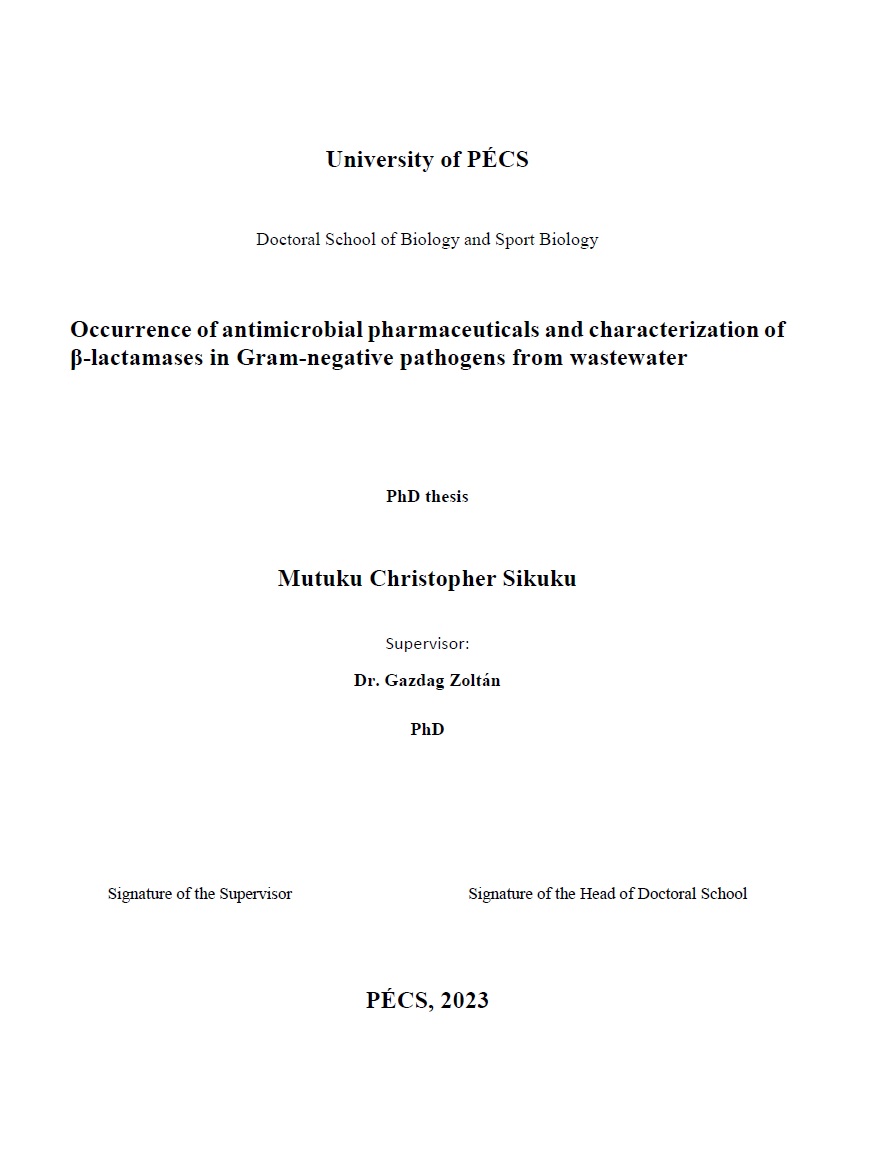Occurrence of antimicrobial pharmaceuticals and characterization of β-lactamases in Gram-negative pathogens from wastewater
Abstract
The antibiotics frequently administered to animals and humans persist in the environment through accumulation, transformation, and deposition. They are regarded as emergent micropollutants of concern whose long-term exposure can produce significant eco-toxicological effects even at minute concentrations. The occurrence of these antimicrobial pharmaceuticals, their metabolites and diverse bacteria in aquatic media has the potential to select for resistant bacteria. According to Directive 91/271/EEC, no specific restrictions are imposed for hospital sewage effluents that can be discharged into urban wastewater sewerage networks without previous treatment. This implies that many countries across Europe release untreated hospital effluents carrying antimicrobials into the urban wastewater stream for co-treatment with the municipal wastewater at the urban wastewater treatment plant prior to discharge into the environment. The antimicrobials in the wastewater systems may exert a continuous selective pressure leading to the evolution of antibiotic resistant bacteria through adaptation, vertical and horizontal transfer of resistance determinants. Some of these bacteria such as, Escherichia coli, Klebsiella species and Enterobacter form part of bowel microbiota and are human opportunistic pathogens, while others such as Pseudomonas aeruginosa is an environmental organism that is associated with hospital-acquired infections. These bacteria have developed resistance to multiple antimicrobials, including enzymatic degradation of the broad-spectrum β-lactams that are commonly used in clinical practice. Among the most common degrading enzymes are acquired extended-spectrum serine β-lactamases (ESBLs), which inactivate the oxyimino cephalosporins (ceftriaxone, ceftazidime, cefepime) and aminopenicillins (amoxicillin and ampicillin), as well as metallo-β-lactamases (MBLs), which degrade most of the β-lactams, including the lifesaving carbapenems.

